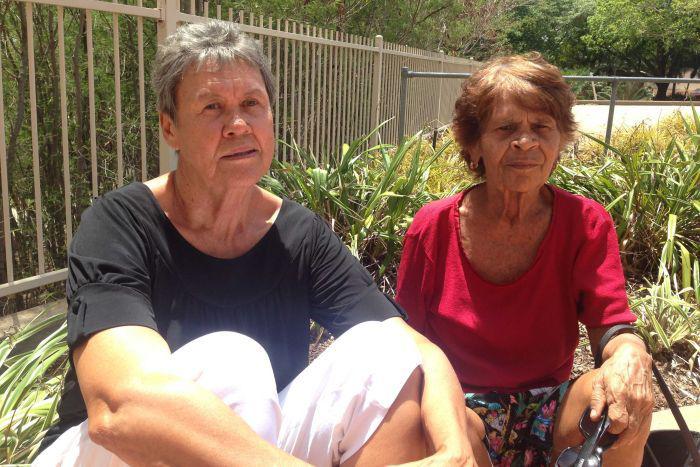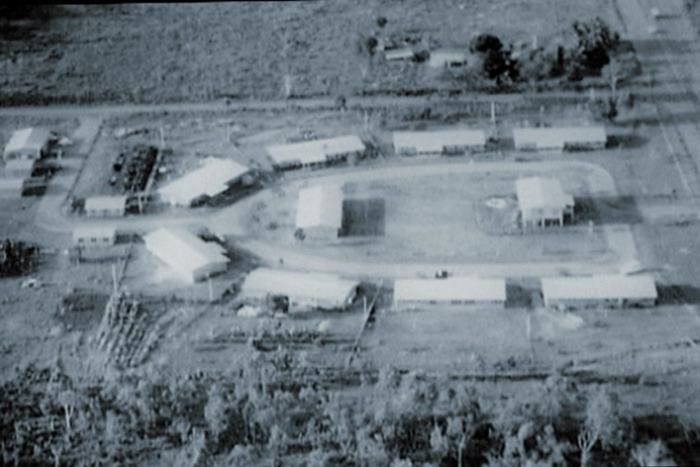|
Retta Dixon Home: Institutional sex abuse compensation case to enter Commonwealth mediation
By Jane Bardon
Former residents of a church-run home for Indigenous Stolen Generation children in Darwin have moved a step closer to becoming the first group to gain compensation from the Federal Government after giving evidence to the Royal Commission into Institutional Responses to Child Sexual Abuse. Eighty-five Retta Dixon Home residents launched a class action in the Northern Territory Supreme Court in September 2015 to try to gain redress for years of horrific sexual and physical abuse. The case has now been put on hold because the Commonwealth has agreed to go into mediation. Bill Piper is the residents' solicitor. "The Commonwealth have been proposing the mediation at this point, which is a very positive thing, because it's consistent with a party to an action that is acting in good faith and wanting to try and resolve it," he said. Former Retta Dixon resident Sue Roman is also welcoming the Federal Government's latest move. 'The impacts have been horrendous' Sue Roman was taken from her mother, who had also been removed from her own mother, to Retta Dixon, as a baby, in 1950. She was like many of the children there, forcibly taken from Indigenous mothers, to the home run by Australian Indigenous Ministries from 1946 to 1980, and overseen by the Commonwealth. Other children were taken there voluntarily by unsuspecting mothers who could not afford to look after them or thought they would be given a better life. Sue Roman spent 13 years at Retta Dixon, before being sent to a foster family in Victoria. "The abuses Retta Dixon people suffered need to be addressed, from physical, mental, sexual, lack of education, and a child died at the hand of one of the missionaries," she said. Ms Roman said giving evidence to the Commission, in Darwin two years ago, about rapes, beatings and force feeding by missionary house parents, including a convicted sex offender, has opened a lot of painful memories which many former residents had hidden away from families and friends. "The impacts of doing all of that has been horrendous, it's opened really old wounds for a lot of people who had these really dark secrets," she said. 'They allowed us to live there without rescuing'Barbara Cummings was taken from her mother in Darwin and brought to the home in 1948. She was beaten regularly during 17 years there.
She and other residents view the Commonwealth, which inspected the home, as just as responsible as its operators. "The fact is, that they owe us. They allowed us to live there for all those years without any rescuing," she said. The Department of the Prime Minister said the Commonwealth is open to using alternative dispute mechanisms including mediation. "The Commonwealth is committed to working with the claimants to resolve the matter," the Department said. "The Commonwealth acknowledges the great distress and harm that was suffered by many Aboriginal and Torres Strait Islander Australians as a result of past removal practices." The residents have gained no assurances about Australian Indigenous Ministries' attitude to mediation. The Church referred the ABC to its lawyers, who have not responded. "Australian Indigenous Ministries haven't been as interested in the proceeding. They've been very minimalist in their responses," the residents' lawyer Bill Piper said. 'Voluntary compensation scheme falls short'The Federal Government's voluntary compensation scheme offer has not dissuaded the former residents from their court fight. Half of the former residents are suing for physical abuse, which is not covered by the Federal scheme. They view the $150,000 cap on claims, as too low in the cases of severe sexual abuse. "The degree of harm that our people endured, I would like to think that we can get something better," Ms Roman said. Ms Roman hopes if the case gains a successful outcome for the residents that it will act as a model for other groups seeking compensation for historic, or more recent abuse. "What went on in Retta Dixon is still going on in foster care and residential care. There's a lot of lessons to be learned from our case and it may set up a model in the future for other people who want to take a similar route," she said. "Children have just been so powerless within systems which they haven't chosen themselves to opt into." The Retta Dixon case mediation is expected to start in February.
|
.
Any original material on these pages is copyright © BishopAccountability.org 2004. Reproduce freely with attribution.

